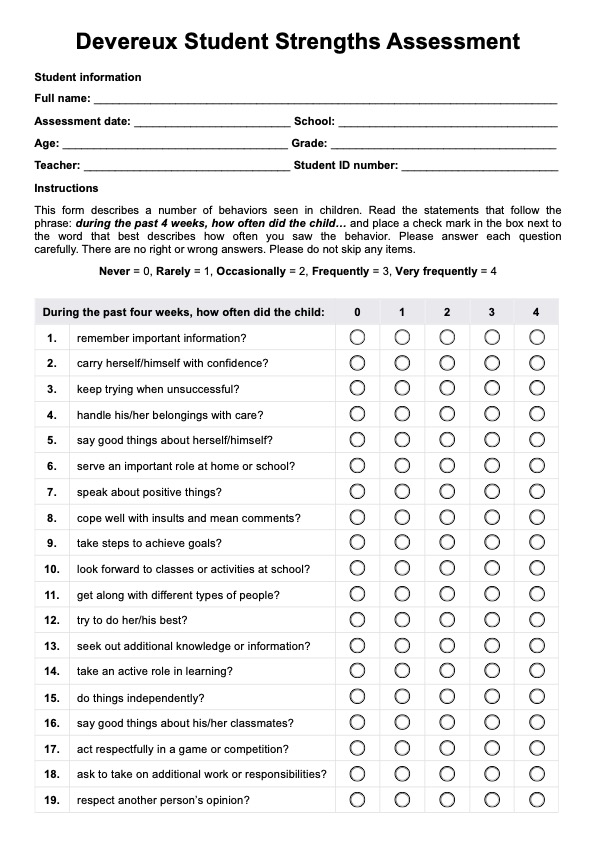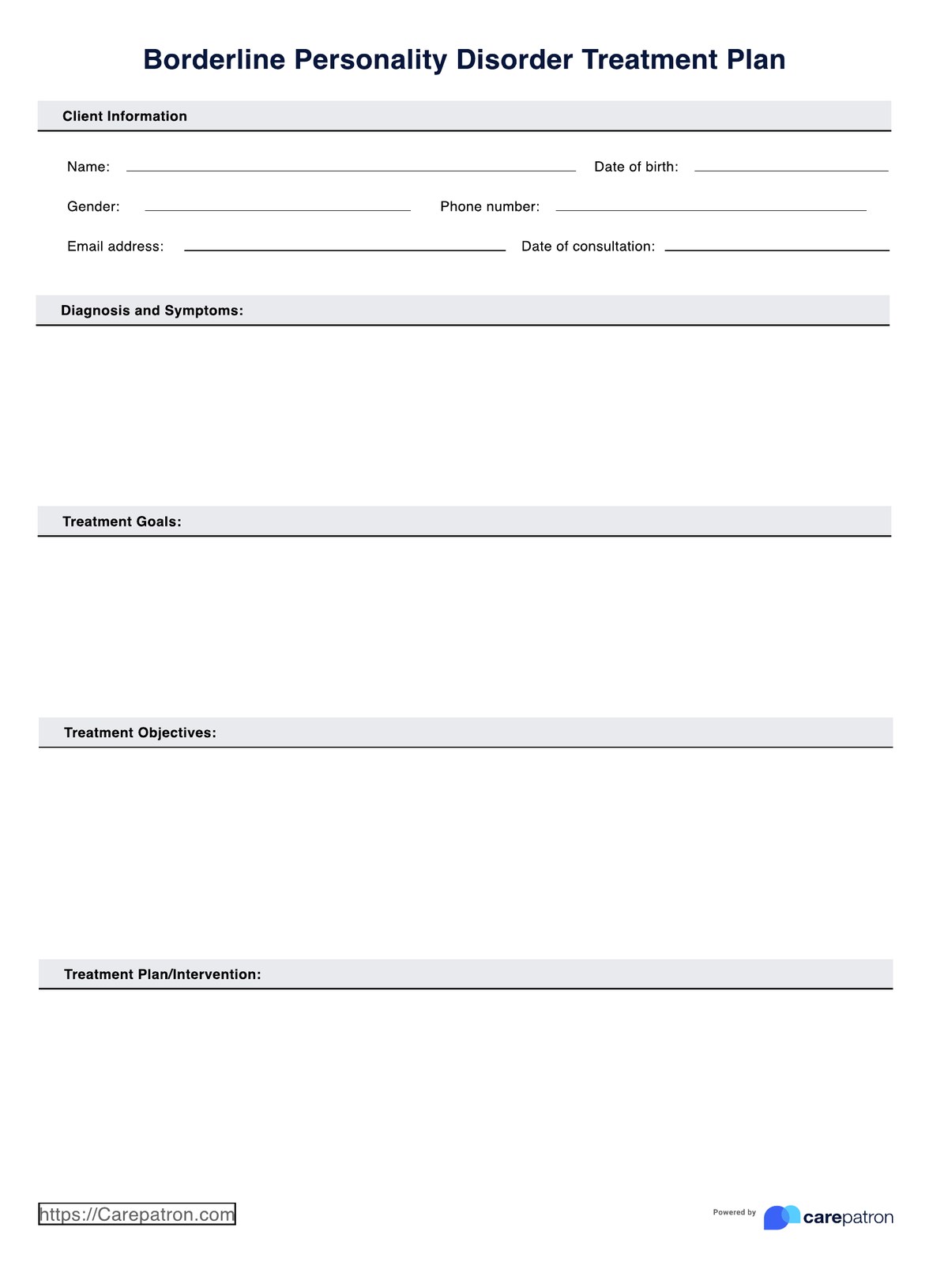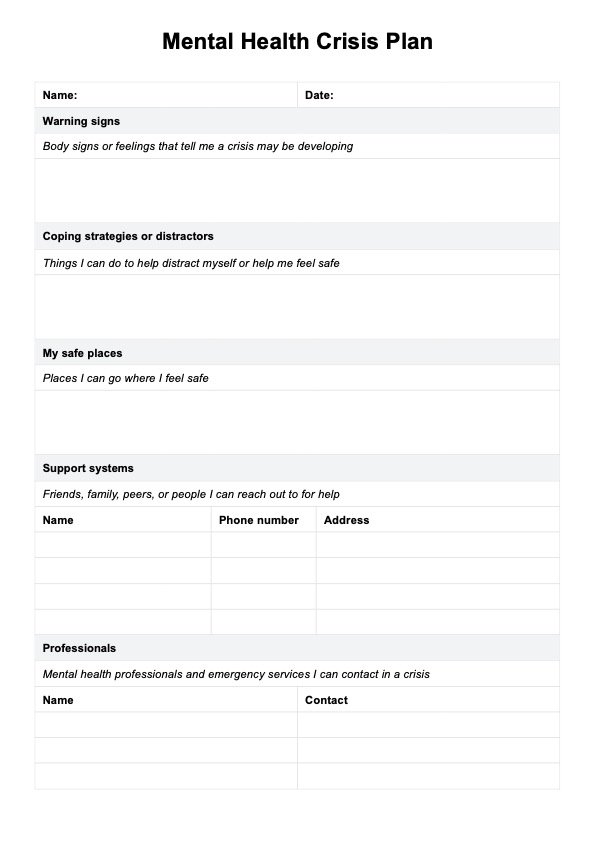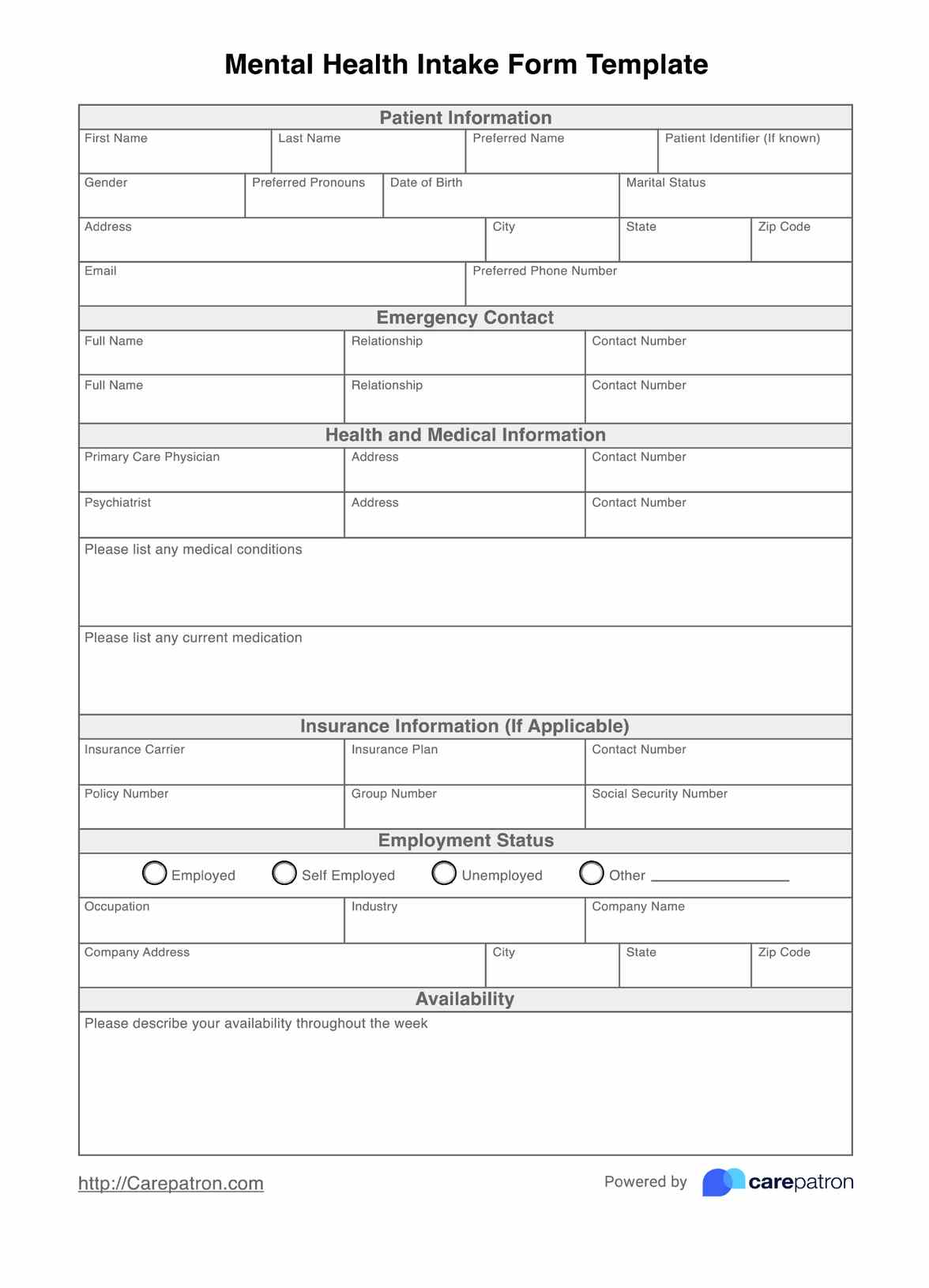Asking for Help Worksheet
Overcome asking for help anxiety! This Asking for Help Worksheet guides you through self-reflection, providing a framework for clear communication.


Why is learning to ask for help important?
A student encounters a challenging math problem in class. Confusion sets in, accompanied by a tightening knot of anxiety. Despite attempting to solve it independently, they increasingly need help. The fear of judgment or appearing incompetent stifles any inclination to seek assistance. This struggle highlights the significance of learning to ask for help.
Practicing the art of asking for help is essential in academic settings and real-life situations. From navigating new job responsibilities to managing personal relationships or addressing mental health concerns, knowing when and how to seek assistance can make a significant difference.
In school, teaching children the importance of seeking assistance extends beyond academic proficiency. It nurtures essential social skills and fosters a growth mindset. By encouraging students to ask for help, educators cultivate self-awareness and resilience, empowering them to confront challenges confidently.
One effective strategy in this regard is the use of social stories. These narratives and ideas present relatable scenarios and model appropriate responses, helping students understand the value of seeking assistance when needed. What's more, creating a supportive environment where students feel safe to ask for help is crucial. Building a trust and open communication culture motivates students to reach out to a trusted adult or peer for guidance to help them accomplish their tasks.
Asking for help equips individuals with invaluable skills and a mindset conducive to overcoming obstacles. By instilling this principle early on and providing opportunities for practice and reinforcement, we empower individuals to navigate life's complexities with resilience and confidence.
Asking for Help Worksheet Template
Asking for Help Worksheet Example
How can a person learn to ask for help?
Learning to ask for help is a valuable skill that can empower individuals to navigate challenges more effectively. Here are five ways individuals can cultivate this skill:
- Engage in self-reflection: Reflect on personal strengths and areas where assistance may be needed. Acknowledging one's limitations can create a foundation for seeking help and promote self-awareness.
- Create a supportive environment: Foster open communication with trusted friends, family members, or mentors who can provide guidance and support.
- Focus on effective communication: Practice expressing needs and concerns clearly and assertively. Communicating effectively can help individuals articulate their requests for help and receive a meaningful response.
- Task-oriented approach: Break tasks or challenges into smaller, manageable steps. By focusing on each step individually, individuals can overcome feeling overwhelmed and approach asking for help with clarity and purpose.
- Embrace emotional intelligence: Recognize and validate emotions associated with asking for help, such as vulnerability or fear of judgment. Embracing emotional intelligence allows individuals to respond to these feelings compassionately and navigate the process of seeking assistance with resilience.
What is an Asking for Help Worksheet?
An "Asking for Help Worksheet" assists individuals in effectively communicating their needs and concerns to healthcare professionals or other support providers. It typically includes a series of scenarios or prompts related to various challenges or situations where assistance may be needed. The content may vary depending on the age group or level of the individual using the worksheet.
Users are prompted to articulate their thoughts, feelings, and specific requests for support in each scenario. Through the worksheet, individuals express themselves clearly and advocate for their well-being. By completing the worksheet, they can identify areas where they require assistance, practice asking for help, and develop strategies for effective communication.
Ultimately, the Asking for Help Worksheet aims to facilitate open communication, promote self-advocacy, and empower individuals to seek the support they need to address their concerns and improve their well-being. It encourages individuals to reflect, identify potential barriers to seeking help, and develop confidence to seek assistance when necessary.
How does our Asking for Help Worksheet template work?
The Asking for Help Worksheet template helps facilitate effective communication between individuals and healthcare providers. This worksheet allows individuals to articulate their needs and concerns, accessing support and guidance tailored to their circumstances.
Step 1: Download
Download the worksheet and review the instructions to understand its purpose and how it can assist in seeking support and guidance. Ensure accessibility for future reference.
Step 2: Identify scenarios
Identify relevant scenarios from the list provided in the worksheet, aligning with personal challenges and concerns.
Step 3: Complete scenarios
Thoughtfully complete each scenario, utilizing honesty and thoroughness to express needs and requests for assistance clearly. This is the part where you carefully consider how to respond to specific social scenarios.
Step 4: Seek guidance as needed
Seek guidance from trusted individuals or healthcare professionals if you need more certainty about approaching specific scenarios.
Step 5: Save and prepare for appointment
Save a copy of the completed worksheet for reference and bring it to scheduled appointments with healthcare providers.
Step 6: Discuss with healthcare provider
Share the completed worksheet with the healthcare provider during the appointment. Utilize it as a guide for open communication, discussing needs and concerns comprehensively.
Step 7: Implement recommendations and follow up
Implement any recommendations the healthcare provider provides and follow up as needed to track progress. After all, this is not a one-time process.
What are the benefits of learning to ask for help?
It can be challenging to ask for help, especially if you're accustomed to handling tasks independently. However, there are several benefits to learning to seek assistance:
- Increased efficiency: Asking for help allows you to leverage the expertise and resources of others, leading to quicker and more efficient problem-solving. For instance, collaborating with colleagues on a project can result in innovative solutions and faster completion times.
- Enhanced learning: Seeking help exposes you to different perspectives and knowledge, facilitating more profound understanding and skill development. For example, asking a mentor for guidance can provide valuable insights and accelerate your learning curve.
- Strengthened relationships: Asking for help fosters a sense of connection and trust, maintaining relationships with others. Whether seeking advice from a friend or mentor, reaching out can deepen bonds and create a supportive network.
- Reduced stress: Sharing the burden of tasks or challenges with others can alleviate stress and prevent burnout. For instance, delegating responsibilities to colleagues or family members can lighten your workload and improve overall well-being.
- Personal growth: Learning to ask for help cultivates humility and resilience, fostering personal growth and development. By embracing vulnerability and seeking assistance, individuals can overcome challenges and achieve their goals more effectively.
In which situations would asking for help prove beneficial?
In various aspects of life, there are situations where seeking assistance can be immensely beneficial. Knowing when to ask for help can result in growth and progress in academic, professional, or personal settings.
- Academic challenges: When faced with complex assignments or unfamiliar concepts, asking for help from teachers or peers can provide clarity and support, ultimately enhancing learning outcomes.
- Mental health concerns: Seeking assistance from trained professionals or support networks can offer invaluable guidance and resources for managing stress, anxiety, or depression and fostering mental well-being.
- Career development: Requesting mentors' feedback or advice from career counselors can help individuals navigate career transitions, identify growth opportunities, and achieve professional success.
- Personal relationships: In times of conflict or uncertainty, reaching out to trusted friends, family members, or therapists can facilitate open communication, resolve misunderstandings, and strengthen interpersonal connections.
- Health and wellness: Seeking medical advice from healthcare professionals or support groups can provide essential information and encouragement for managing chronic conditions.
Commonly asked questions
The worksheet is utilized by individuals seeking support and guidance from healthcare professionals, educators, or mentors.
You can use the Asking for Help Worksheet whenever you encounter challenges or situations where you require assistance and wish to communicate your needs effectively.
The worksheet is beneficial as it provides a structured approach for articulating concerns, fostering open communication, and empowering individuals to seek the support they need.


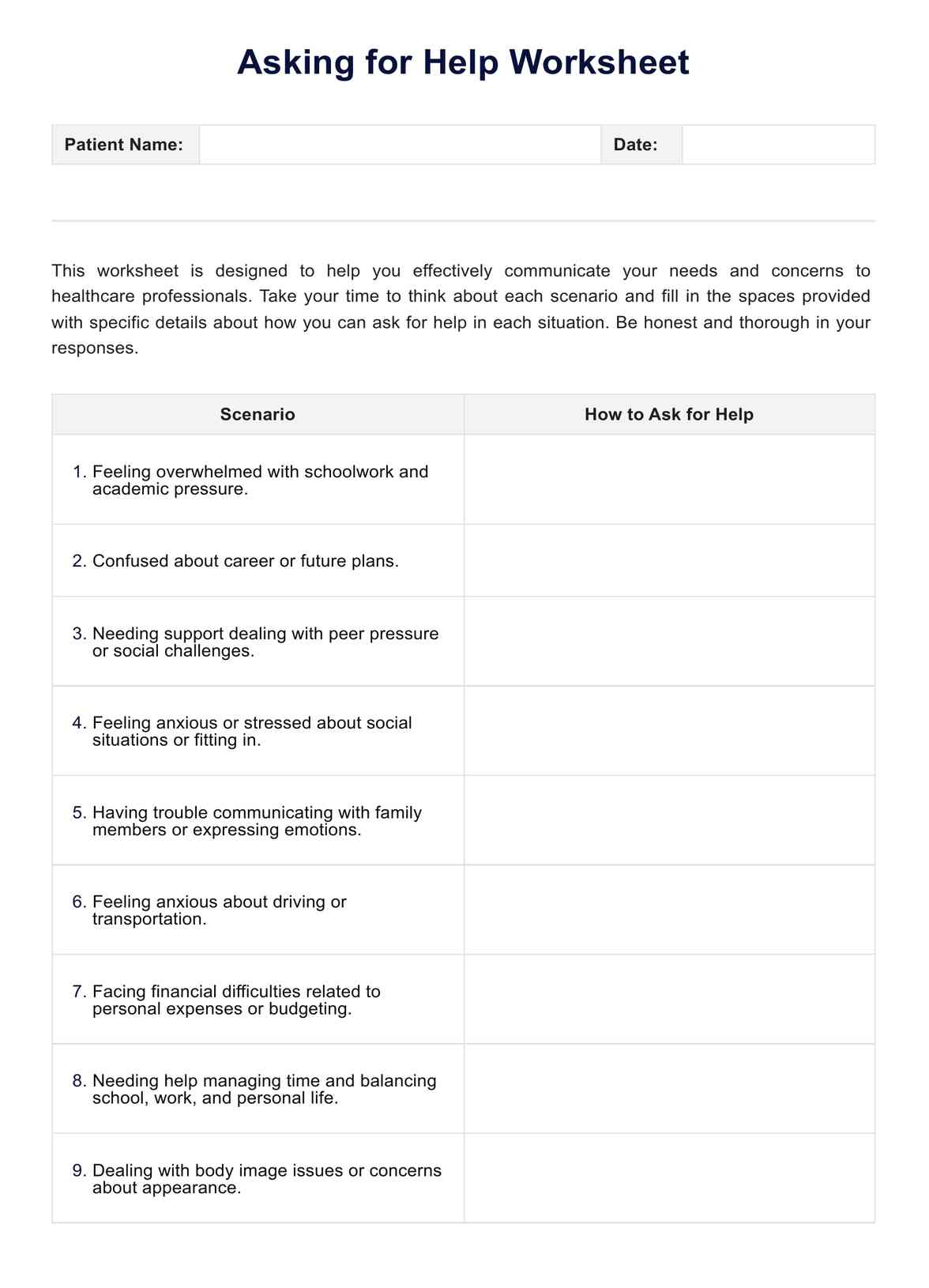
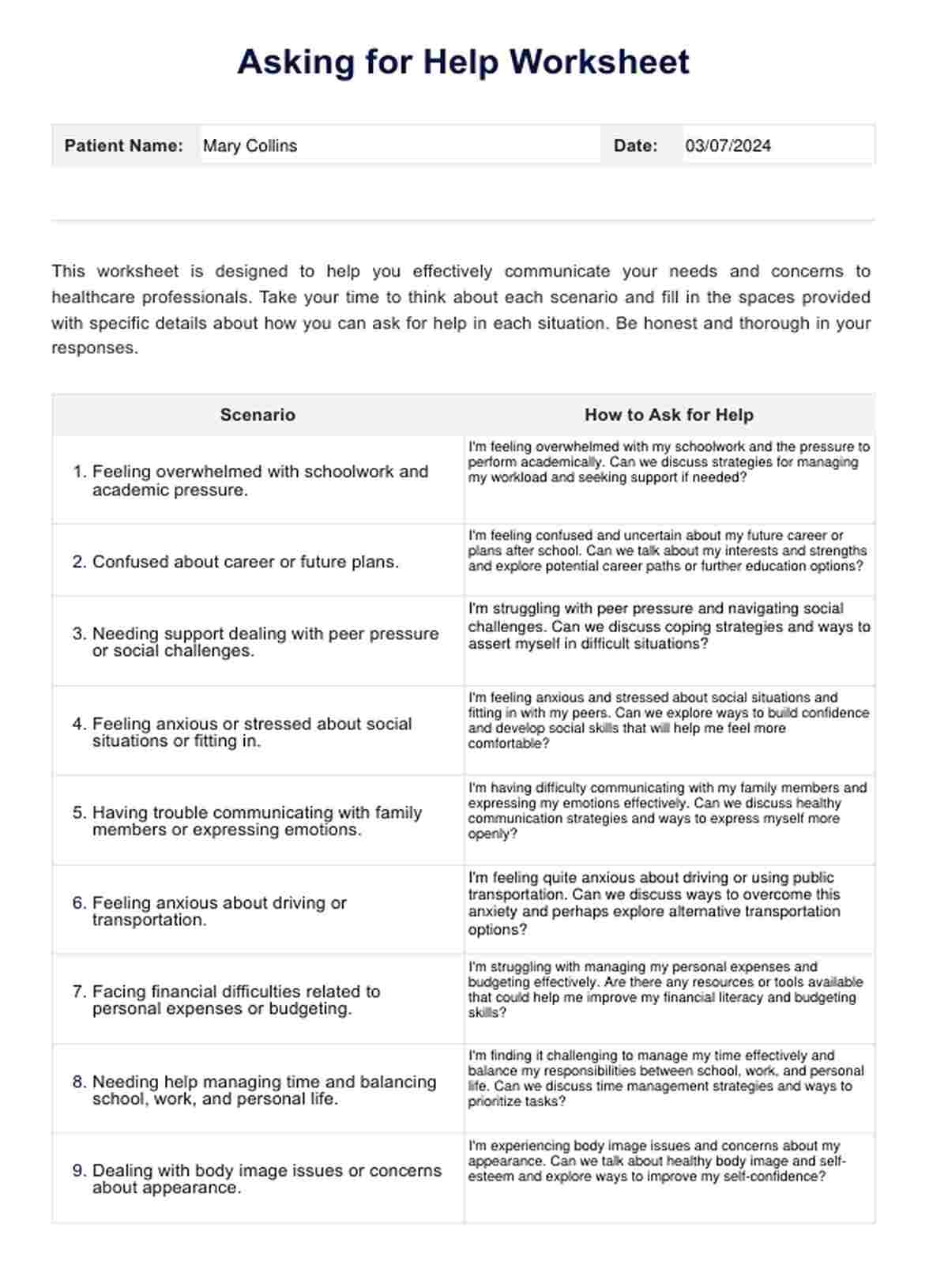

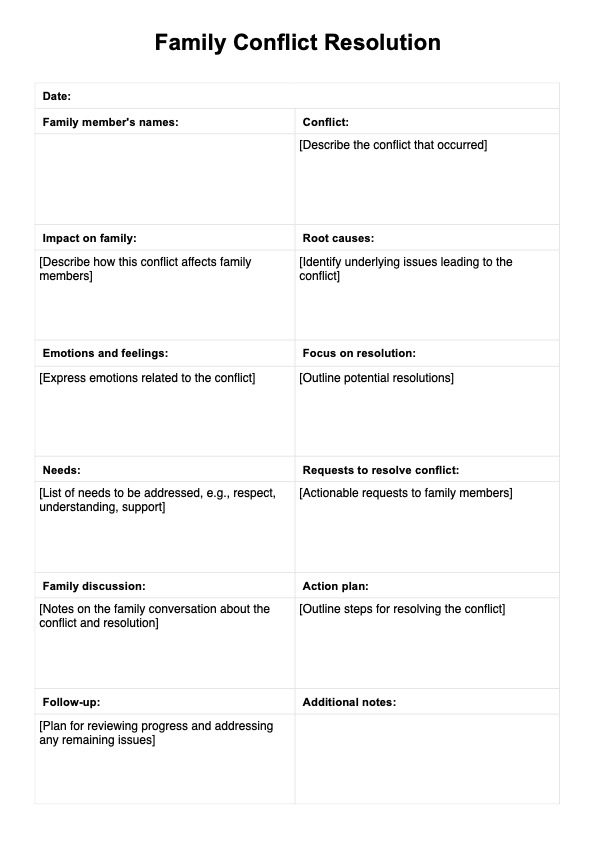















-template.jpg)

























